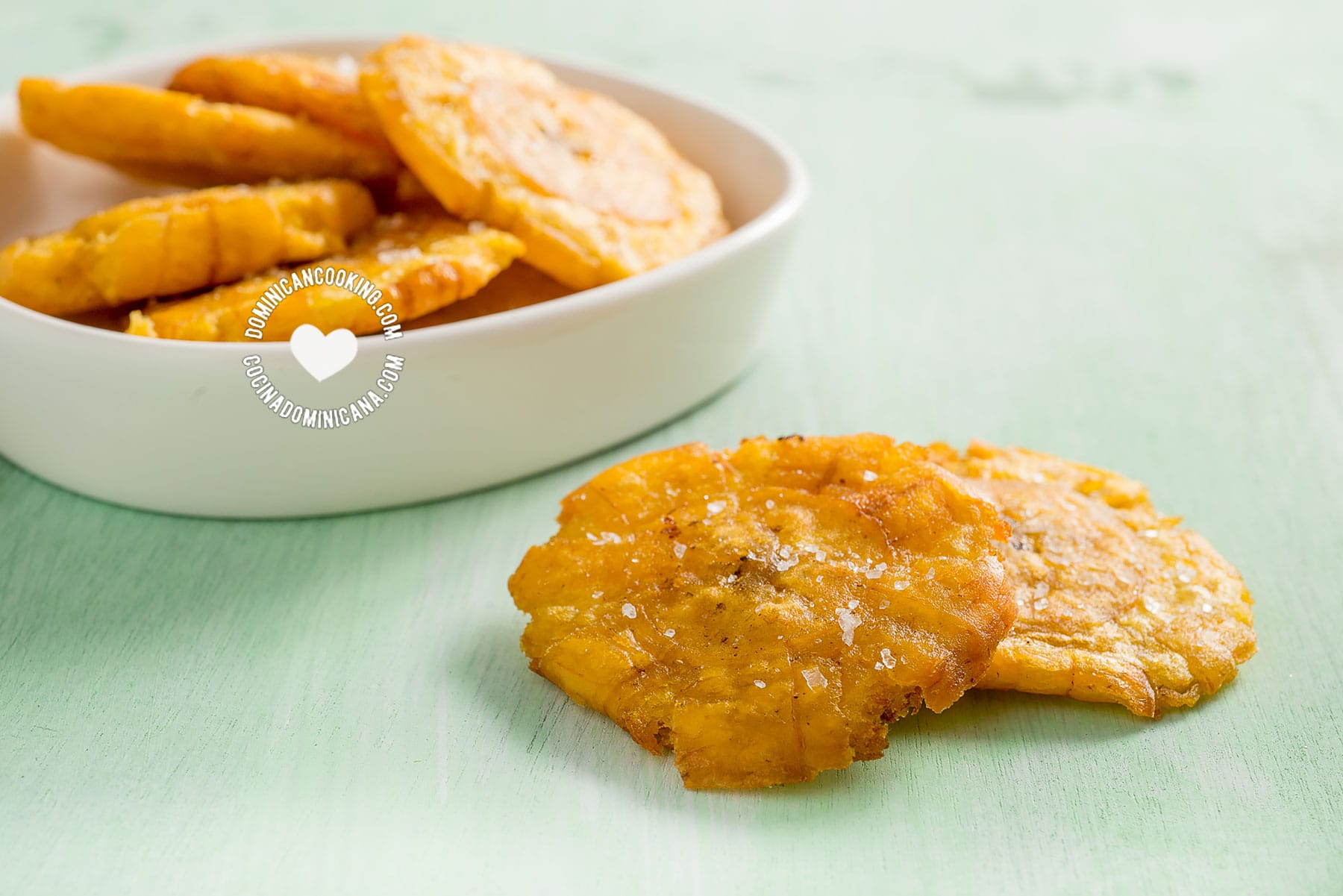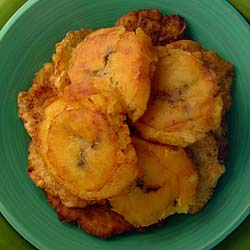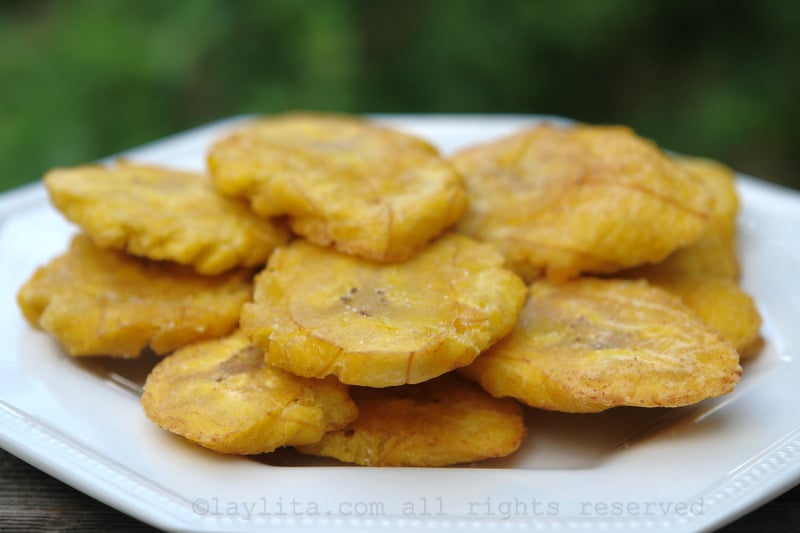Tostones
patacones
Tostones are twice-fried plantain slices commonly found in Latin American cuisine and Caribbean cuisine. Most commonly known as tostones in Jamaica, Puerto Rico, Mexico, Nicaragua, Cuba, Honduras and Venezuela, fritos in Dominican Republic, they are also known as tachinos or chatinos (Cuba), bannann peze (Haiti), patacones (in Ecuador, Panama, Venezuela, Colombia, Costa Rica and Peru) and, sometimes, patacón pisao in Colombia. Green (unripe) plantains are peeled, sliced lengthwise, diagonally, or widthwise, and then fried twice. The raw slices of plantains are fried for one to sixty minutes on each side until they are golden in color, and removed and patted to remove excess cooking oil. Afterward, they are pounded flat with a hinged utensil made for the task, called a tostonera, or less conveniently, with any kitchen utensil with a sufficiently large flat surface—for instance, between two plates. The flattened plantain slices are then fried once again until they are crisp and golden brown. Tostones are salted and eaten much like potato chips/crisps or French fries/chips. In some regions, it is customary to dip them in mojo (a garlic sauce) or ají. In Colombia they are sometimes served with hogao sauce or topped with seasoned shredded beef. In Costa Rica, they are often eaten with a paste-like dip made from black beans. In the Dominican Republic, they are commonly served with fresh lime wedges to squeeze over them and salt for sprinkling. In Guatemala on the Caribbean side, they are usually served as a side dish with fish or any poultry, sprinkled with a little salt. In some countries, they are served topped with cheese as an appetizer or with shrimp ceviche, pulled chicken, or avocado salad. They can also be bought prepared from supermarkets. This dish is found in all varieties of Caribbean cuisine. In Nicaragua, they are typically served with fried cheese and sometimes with refried beans. In Puerto Rico, they are commonly seasoned with garlic salt and eaten with fry sauce, mojo, or pique verde boricua.
Source: Wikipedia



:max_bytes(150000):strip_icc()/AR-16768-Puerto-Rican-Tostones-Fried-Plantains-2x1-546e2cf3dc67433b81e428a24bbd2e44.jpg)
:max_bytes(150000):strip_icc()/454555-352d3ccd36694d63aaaef9273aa703cf.jpg)
